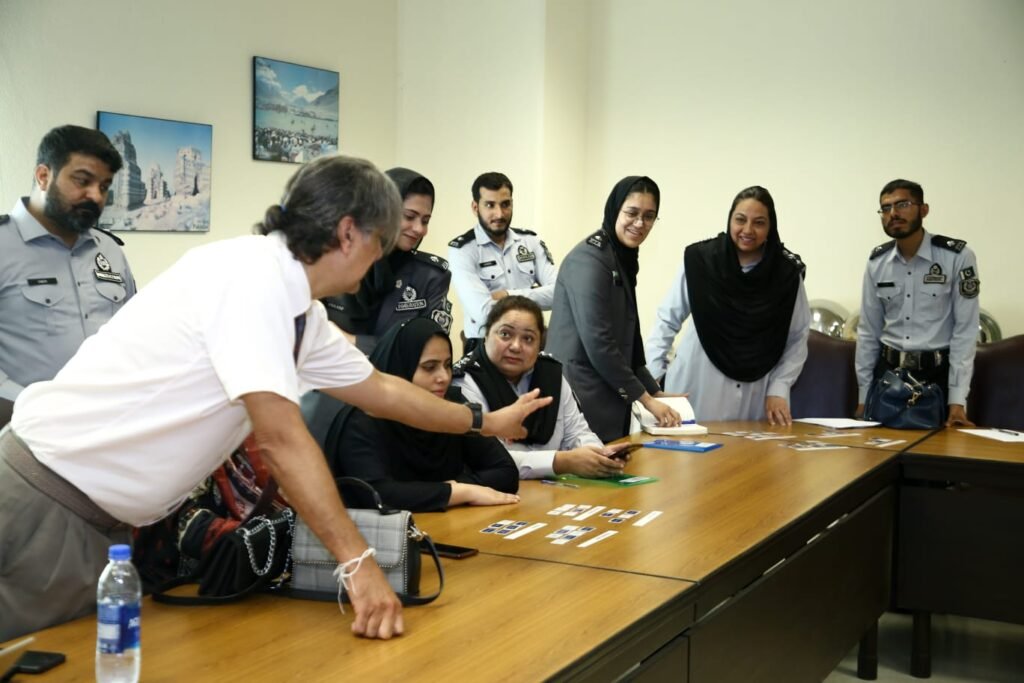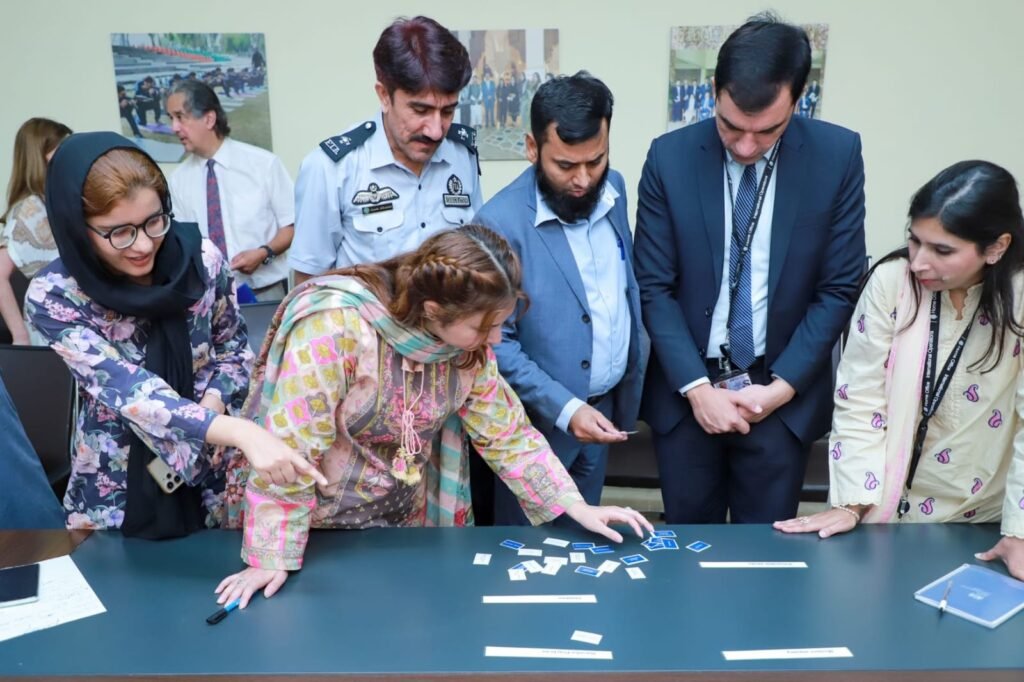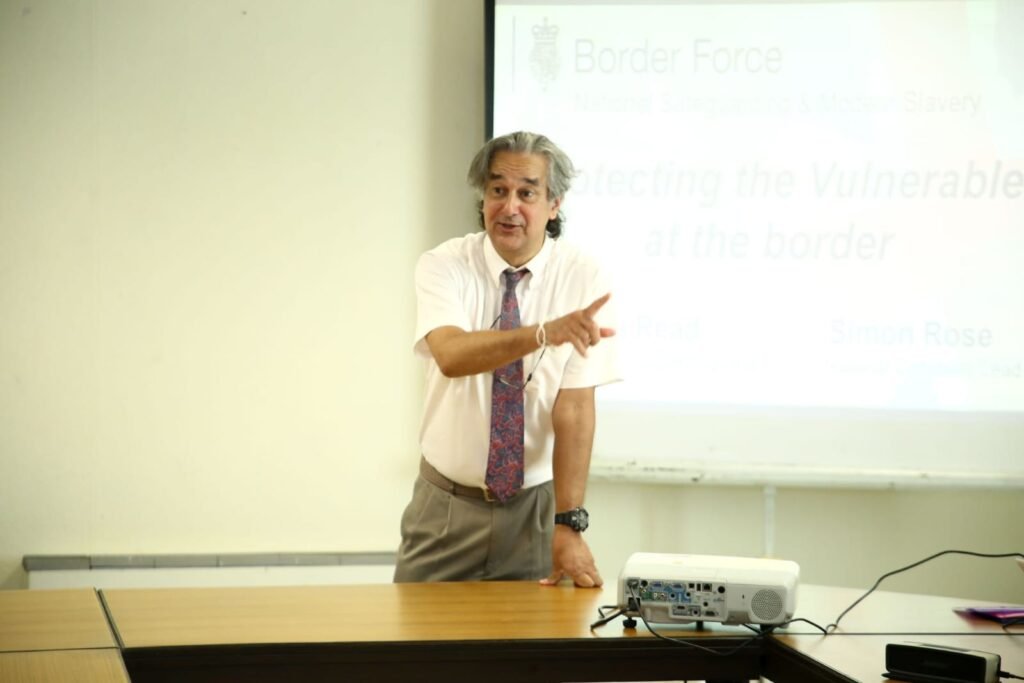Saadullah Saeed
Islamabad: The UK Border Force’s Modern Slavery and Human Trafficking Teams visited Pakistan to deliver Modern Slavery and Anti-human Trafficking training at Islamabad and Lahore Airports.
Eradicating modern slavery and human trafficking is one of the UK’s highest priorities. The British Government and law enforcement work hand in hand with their Pakistani counterparts to safeguard vulnerable victims and prosecute perpetrators across borders.

Ahead of ‘World Day Against Trafficking in Persons’, UK experts on modern slavery and human trafficking from the UK Border Force and the British High Commission trained 31 frontline officers at Islamabad and Lahore airports on safeguarding and early identification of victims.
The training was well received by officers, with all understanding the importance of safeguarding potential victims. Through lessons learned from UK case studies, officers were left equipped to understand how to identify victims early, support vulnerable individuals, and understand the impact trafficking has on victims. The training also covered forced and early marriages, honour-based abuse, and female genital mutilation.

Amanda Read, Border Force National Operational lead for Safeguarding and Modern Slavery, heading up a network of over 500 specialist officers, said:
Through this training, we were able to share some of the best practice that the UK has developed in this area and learn about the challenges faced in Pakistan. Cooperation is essential. We look forward to continuing to work together to ensure better protection of the vulnerable and prevention of all types of exploitation.’

Jane Marriott, British High Commissioner said:
‘Modern Slavery and Human Trafficking are unacceptable tragedies. Early identification of victims is essential, and international cooperation is of the utmost importance. This is a global problem and can only be tackled if we work together.’











